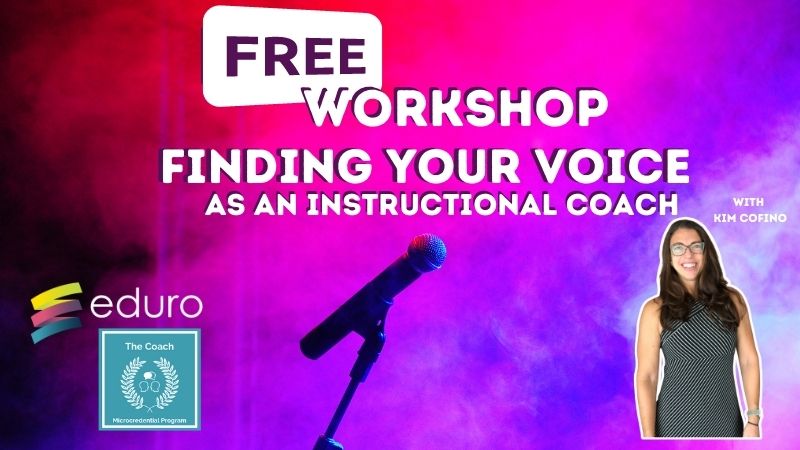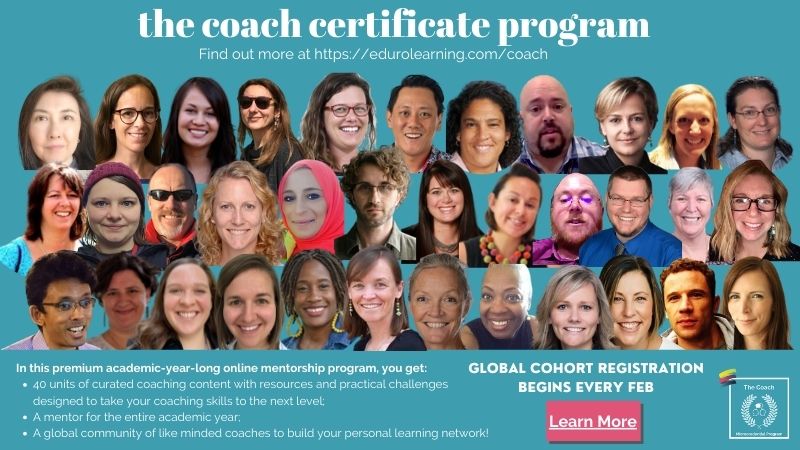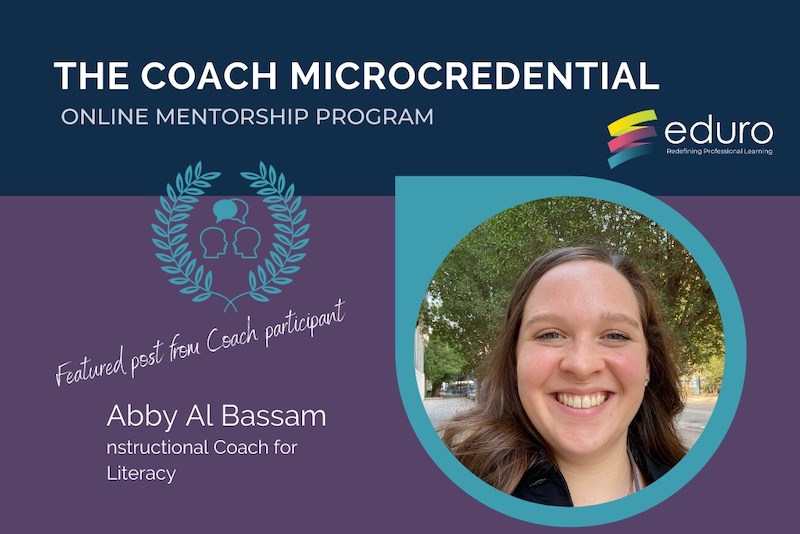We want to give you a peek inside our Coach Certificate & Mentorship Program. Coaches taking part in this academic-year-long journey have graciously given us permission to post some of their learning and reflections from the private coursework they are undertaking during this program. Where possible, we have shared the course and the action task to give context for the guest post.
The Topic: Coaching Foundations: Structures for Success
The Task: Observe a lesson and share the effectiveness of the strategy you used.
During the pre-observation meeting, the grade 2 teacher I am working with stated her goal as, “increase student comfort and engagement during guided reading lessons.” I used questioning to help her go deeper with this goal by describing the behaviors she was looking for. We made a plan for me to attend a few guided reading lessons to watch for these behaviors. After the call, I did some reflecting with Kim where we discussed how to provide the teacher with feedback. I reached back out to the teacher to ask her if she would like the feedback before our follow-up meeting, or if she would like me to share it with her during the meeting. She decided she wanted it to review before we met.
During the observation, I took notes about what I saw happening. These notes included the time, the section of the lesson (activating prior knowledge, picture walk, etc.), and what was happening. In this section, I tried to leave my opinions out of it and write only what I saw or heard. I also provided another section where I gave feedback with sentence stems like, “I like how you…” and, “I wonder if…”
The lesson started with the teacher activating prior knowledge by asking the student to think about the biggest thing she had ever seen. She then revealed the level aa book called “Big” on RazKids. The teacher asked the student to make predictions based on the cover. She then had the student read the book as the teacher followed along with the cursor. When the student struggled with a word, the teacher highlighted the word, so they could focus in on it.
After reading the book, the teacher asked the comprehension question, “What are the things that were big?” The student was able to recall most of the things listed in the book.
For word work, the teacher screen shared a worksheet that, in normal times, she would ask her students to cut and paste to sort sounds. Instead, the teacher had the student say what was in the picture and share what group the picture would go in.
Find YOUR Unique Voice as a Coach!

We know that coaching conversations are an art. Finding just the right questions, just the right tone, and just the right phrases for YOU as an instructional coach, that work just right with your coachees, is a special skill. When we hear highly experienced coaches having a coaching conversation, their conversational choices seem so natural and easy. That’s because they have found their voice as a coach! Are you ready to find yours?
Join Kim for a free workshop, available right now, to learn the concrete strategies that I use with my private mentoring clients and inside The Coach Certificate and Mentorship program! Bonus: it’s pre-recorded, so you don’t have to wait to watch – and you can pause & replay whenever you need it! Are you ready to feel just as natural and confident in your coaching conversations as your coaching idols? Check out the Finding Your Voice as an Instructional Coach workshop at http://edurolearning.com/voice to get started!
During the post-observation meeting, the teacher and I reviewed a few things from the lesson that stood out to us. During the conversation, it got to a point where I was an expert in the room, and it felt like she needed consulting. Looking back, I think having questions prepared to help put some of the reflecting and thinking back on her would have been helpful. This conversation did lead to the teacher wanting to try some new things.
– Focus on fewer skills during each group
– Take some time to read together and then some time to read alone while still on a live call.
– Take some time to read together and then on their own while NOT on a live call. Discuss the book during the next meeting.
– Ask comprehension questions that focus on within, beyond, and about to help students think deeper about the text.
I found it interesting that the things she identified she wanted to work on, were not exactly related to her original goal. I think, having the time to reflect on her own teaching and getting a second point of view, helped her see some of the root causes of her original worries.
Before her next lesson, I provided her with some sample comprehension questions that could be used across levels and genres of text. Watching her guiding reading lesson the next day, I could already see her using some of the strategies we had talked about.
I have since met with this teacher many times. I have noticed, when I have questions to ask planned out ahead of time, I am able to sit in the coaching role more than the consultant role.
Read more from The Coach participants as they share their learning from the certificate & mentorship program…
Amy’s post: The Coaching Cycle
Debra’s post: The Coach Approach
David’s post: What is Coaching? (Coaching as Leadership)
Cary’s post: Why Do Schools Need Coaches?
Andre’s post: What Challenges Do Coaches Face?
Level Up Your Coaching with The Coach!
If you are ready to develop your coaching practice over the next academic year, and explore topics like the coaching balance, building and sustaining coaching relationships, and enhancing professional learning, please join us for our next cohort of The Coach! Wherever you are in building a coaching culture in your school, The Coach will give you the strategies, skills and tools you need to make coaching a success and will empower you to confidently apply instructional coaching strategies in any situation – from building a coaching program, to having coaching conversations, to being a leader in your school community. We facilitate only one cohort each academic year so we can offer individualized support for each participant. Registration for our next global cohort opens on the 21st February and closes on the 14th of March.


Recent Comments